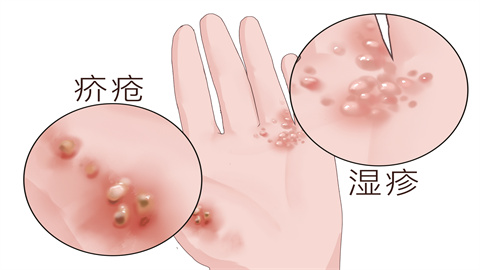Is scabies contagious?
Generally, scabies is contagious and mainly spreads through direct, close contact with an infected person. The probability of transmission through indirect contact with items used by the patient is relatively low. A detailed analysis is as follows:

If there is direct, close contact with a person who has scabies—such as sleeping together, shaking hands, or hugging—the scabies mites can easily transfer from the patient's skin to the surface of a healthy person's skin, then burrow into the stratum corneum (outer layer of skin) to parasitize and reproduce, causing infection. Particularly when the patient's skin becomes broken due to scratching from itching, the mites are more likely to transfer via contact, increasing the risk of transmission. This kind of direct contact is the primary mode of scabies transmission and can easily lead to cross-infection in crowded environments such as households and dormitories. While theoretically possible, the chance of transmission via contact with clothing, bedding, towels, bed sheets, or other personal items previously used by a scabies patient is much lower.
To prevent scabies infection, it is important to avoid direct, close contact with known scabies patients. If family members or people nearby are infected, their used clothing, bedding, and other fabrics should be disinfected by boiling or sun exposure. Individuals should also maintain good personal hygiene by keeping the skin clean, frequently changing clothes and bedding, and avoiding sharing towels, bath towels, or other personal hygiene products.





